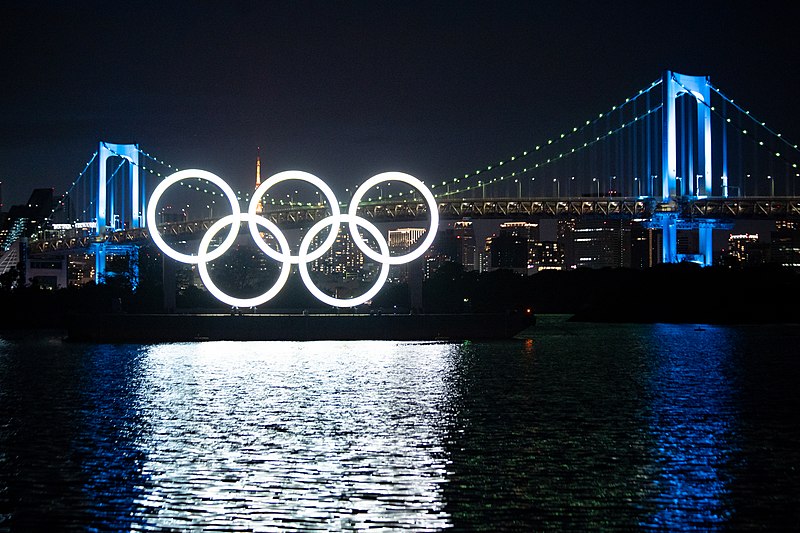Sharp: Social justice belongs in the Olympics
Dick Thomas Johnson, CC BY 2.0, via Wikimedia Commons
The 2020 Olympic Games prompted displays of social justice by athletes from all over the world.
August 19, 2021
Colin Kaepernick, Gwen Berry, Megan Rapinoe, John Carlos, Tommie Smith, the entire Norwegian Handball team. These are all athletes who have used their platforms to promote social justice issues that they care about.
Now, the 2021 Olympic Games have come and gone, leaving behind the burning question: what role should social justice play in the Olympics, and athletics in general?
The role of social justice in the Olympics has been a point of contention almost as long as the games have existed. In 1975, an amendment was added to the Olympic Charter called Rule 50, which stated, “No kind of demonstration or political, religious or racial propaganda is permitted in any Olympic sites, venues or other areas.”
Athletes have pushed back against this rule since its implementation. The desire to keep the Olympic Games a neutral space that primarily focuses on athletics, and athletics alone, is certainly understandable. However, it is equally understandable that many athletes want to use this opportunity to bring international attention to social justice issues that they are passionate about.
Consider Raven Saunders, an Olympian who attended the University of Mississippi. While Saunders was accepting her silver medal at the 2021 Tokyo Olympics, she raised her arms above her head and crossed them on the podium. Saunders explained to NBC that the gesture represented, “the intersection of where all people who are oppressed meet.” Though Saunders didn’t mean any harm, the International Olympic Committee is “looking into” her gesture.
Olympic athletes have a great deal of influence worldwide, and having that kind of influence can mean everything when trying to spread awareness about social justice issues. In the current political climate of not just America but the entire world, it is more imperative than ever that these issues are talked about so that positive social change can be made.
It is also important to call attention to the principle of free speech when discussing this issue. As a member of the press, as well as an American citizen, I very much enjoy practicing my right to free speech. Free speech should be a universal, inalienable human right. Though I know this is not the case in many countries participating in the Olympics, restricting free speech in the Olympics, or anywhere, is a violation of people’s basic human rights.
For years, the Olympics has been a place of international collaboration and comradery, friendly athletic competitions that bring the entire world together. However, it is important to remember that though these events are meant to bring countries together, we can’t just pretend that social justice issues don’t exist during those few weeks. Olympic athletes are so much more than the sport they play, and it’s dehumanizing to view them only through the lens of their sport. These are real people from countries with real problems, and censoring them in the name of peace and neutrality will only lead to greater unrest.









